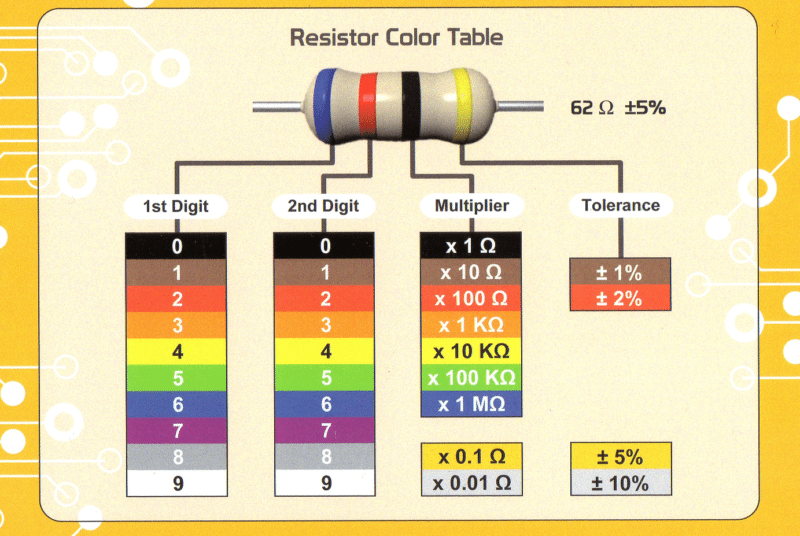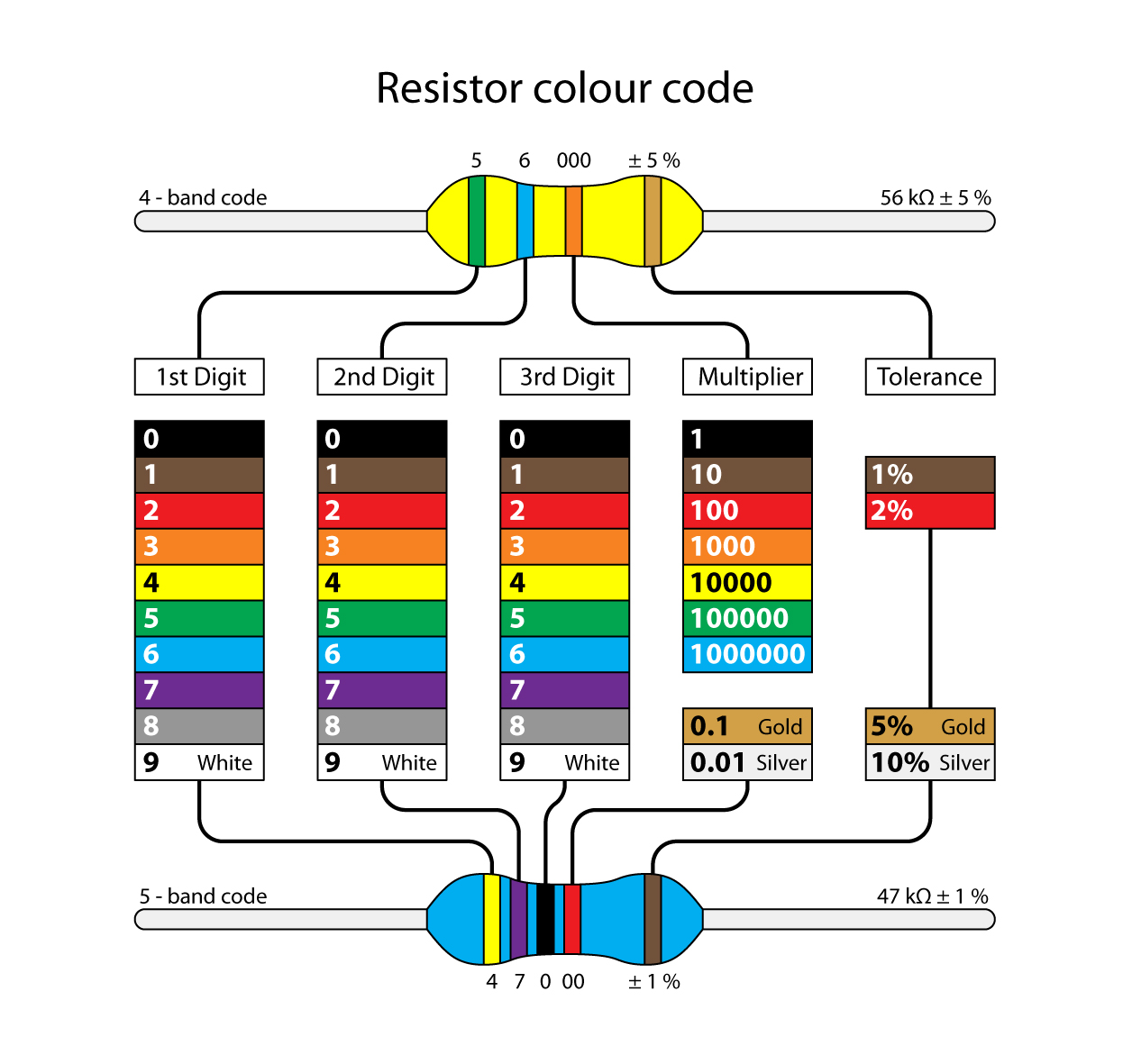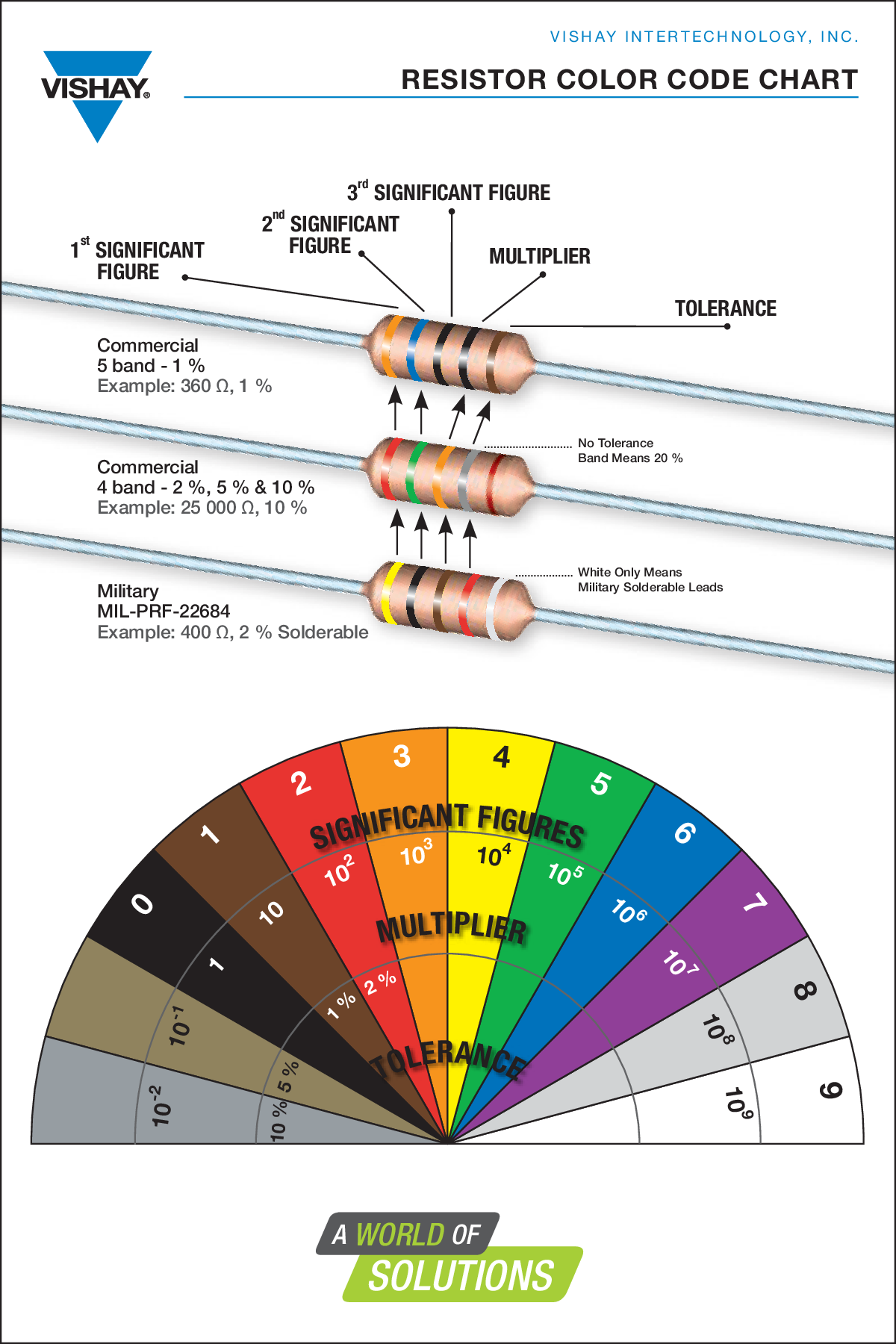Resistor Color Code Calculator Circuit Diagram Learn how to identify resistance values and tolerances of resistors using color codes. See charts for 4-band, 5-band and 6-band resistors with examples and explanations. The resistor color code is a standardized system used to indicate the resistance value, tolerance, and sometimes the temperature coefficient of a resistor. By examining the color bands on a resistor, one can determine its resistance value according to the color code chart. Learn how to read resistor color codes with 4 or 5 bands and find the value and tolerance of any resistor. Use the tool or the table to decode the color bands and see examples.

Learn how to read resistor color code for different types and values of resistors. See the color code chart for 3-band, 4-band, 5-band and 6-band resistors, and the difference between carbon resistor and metal film resistor.

Resistor Color Code Chart Circuit Diagram
4- Band Code 5- Band Code RESISTOR COLOR CODE GUIDE 2 0 x10,000 10 % 20 x 10,000 = 200,000 1,000 = 1K Resistor = 200 K with a 10 % Tolerance+-First Band Second Band Multiplier Band Tolerance Band Equation The Gold or Silver band is always placed to the right. The resistor value is read from the left to right. A 6-band type has the first five-color codes similar to that of a 5-band type resistor. The sixth and the last color band gives the temperature coefficient of the resistor. Consider this example for this: Green, Black, Blue, Black, Gold, and Violet. On putting the values in the Resistor color code calculator, we get 506 ohms with 5% tolerance Learn how to identify and measure resistors using color codes, tolerance, and temperature coefficient. Find tools, tips, and troubleshooting guides for resistor design and testing.

Learn the meaning and the math behind each band of resistor color codes, from three to six bands. See examples, common questions, and the history of resistors. Use this tool to find the resistance, tolerance and temperature coefficient of a color coded resistor by selecting the bands colors. It supports resistors with 3, 4, 5 and 6 bands and follows the international standard IEC 60062:2016.
